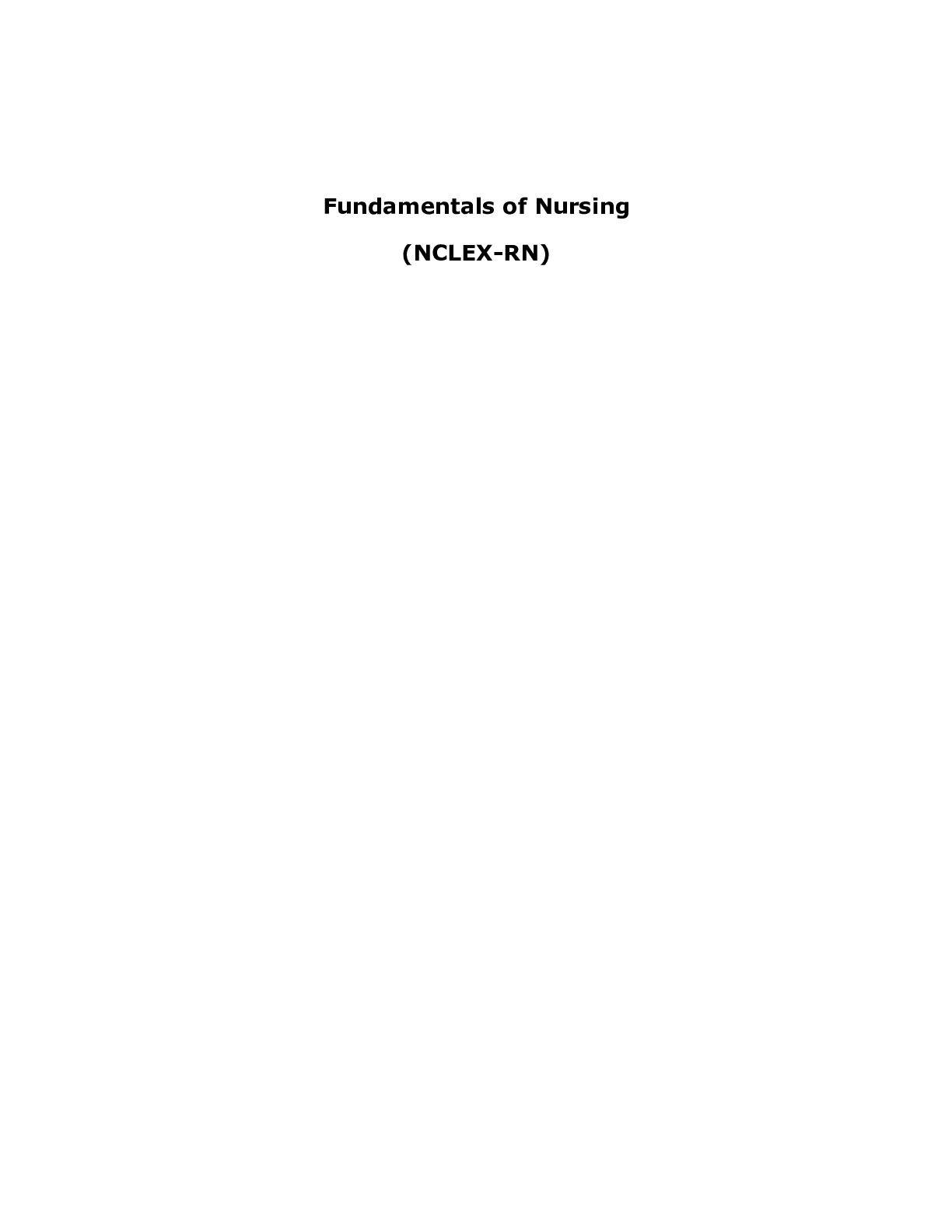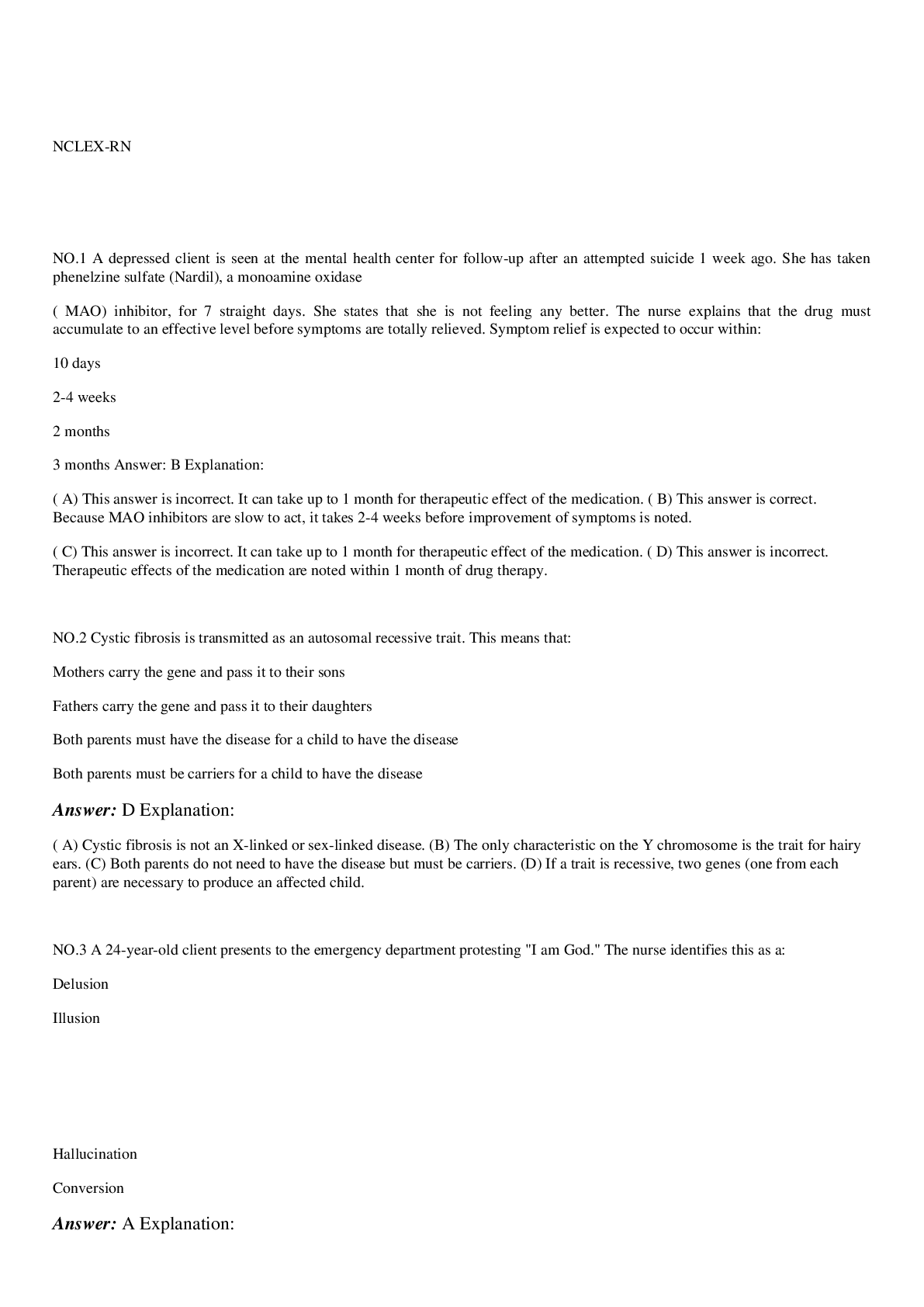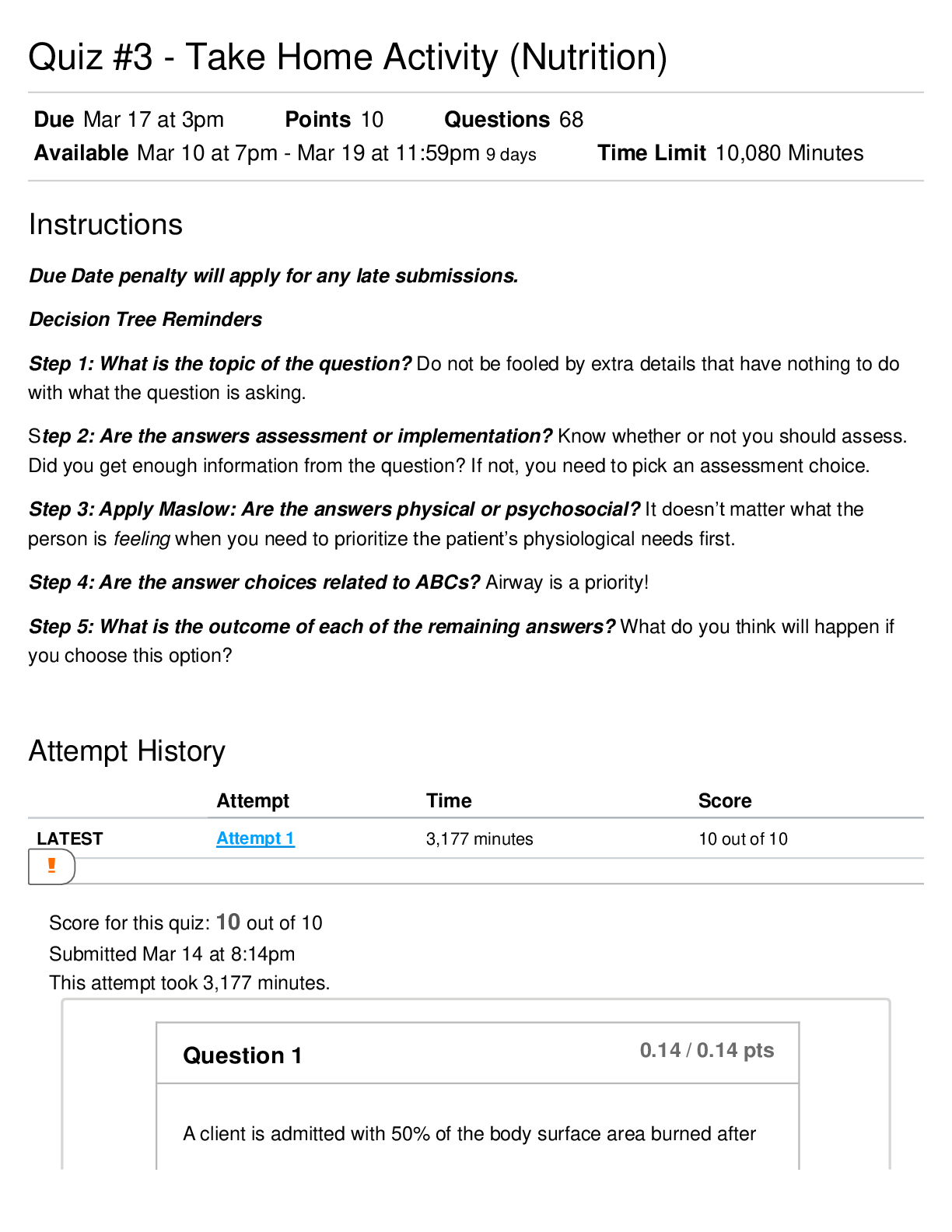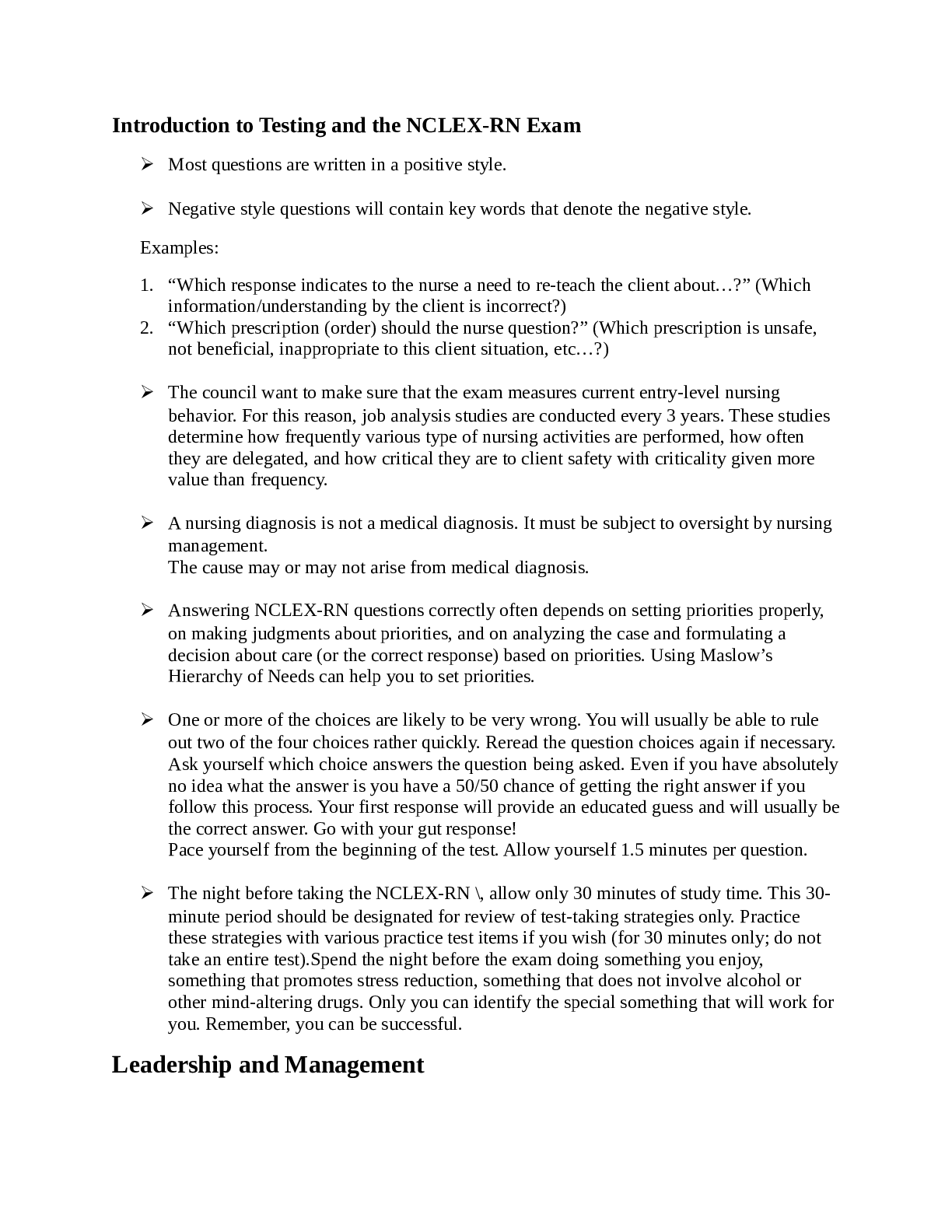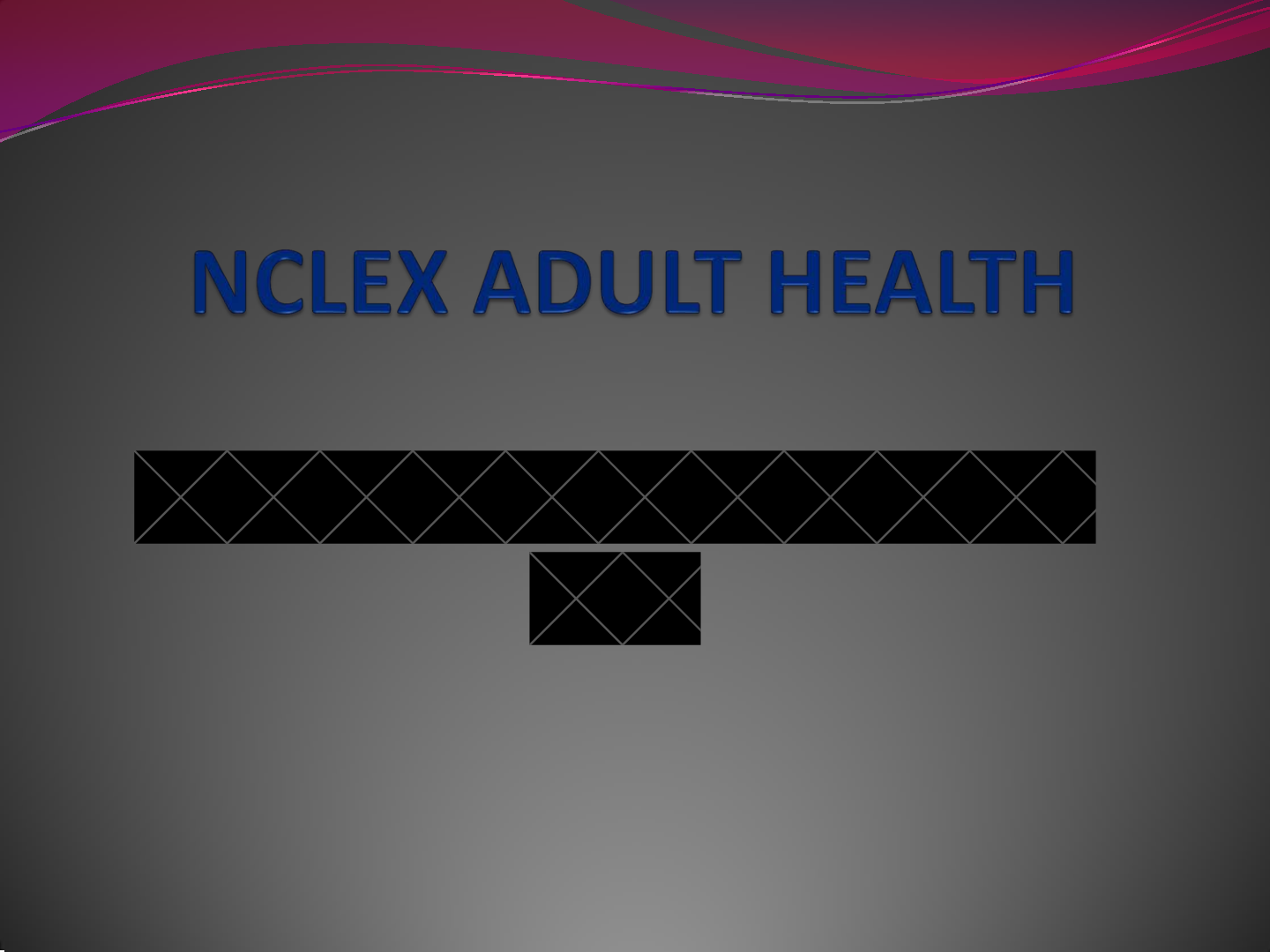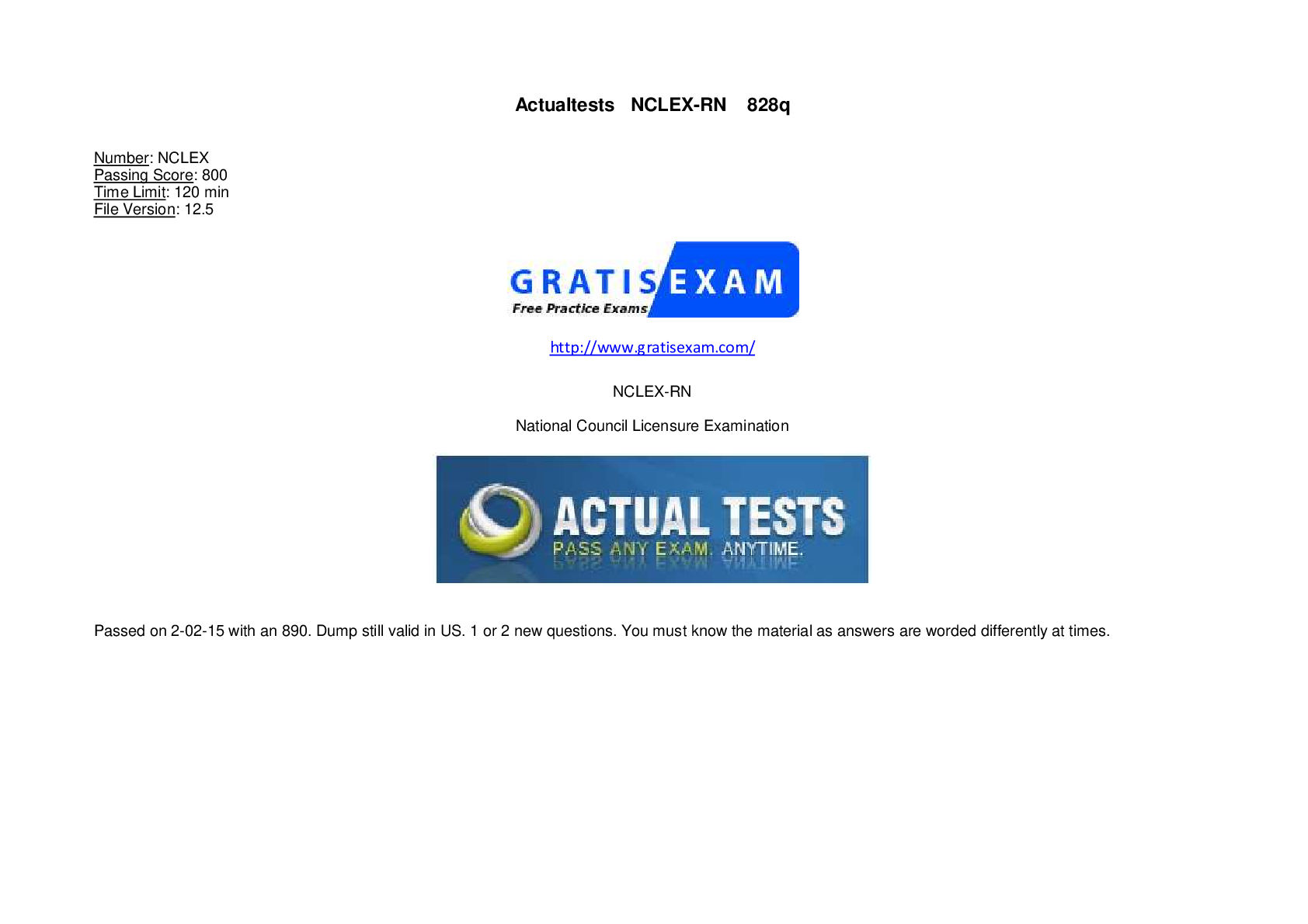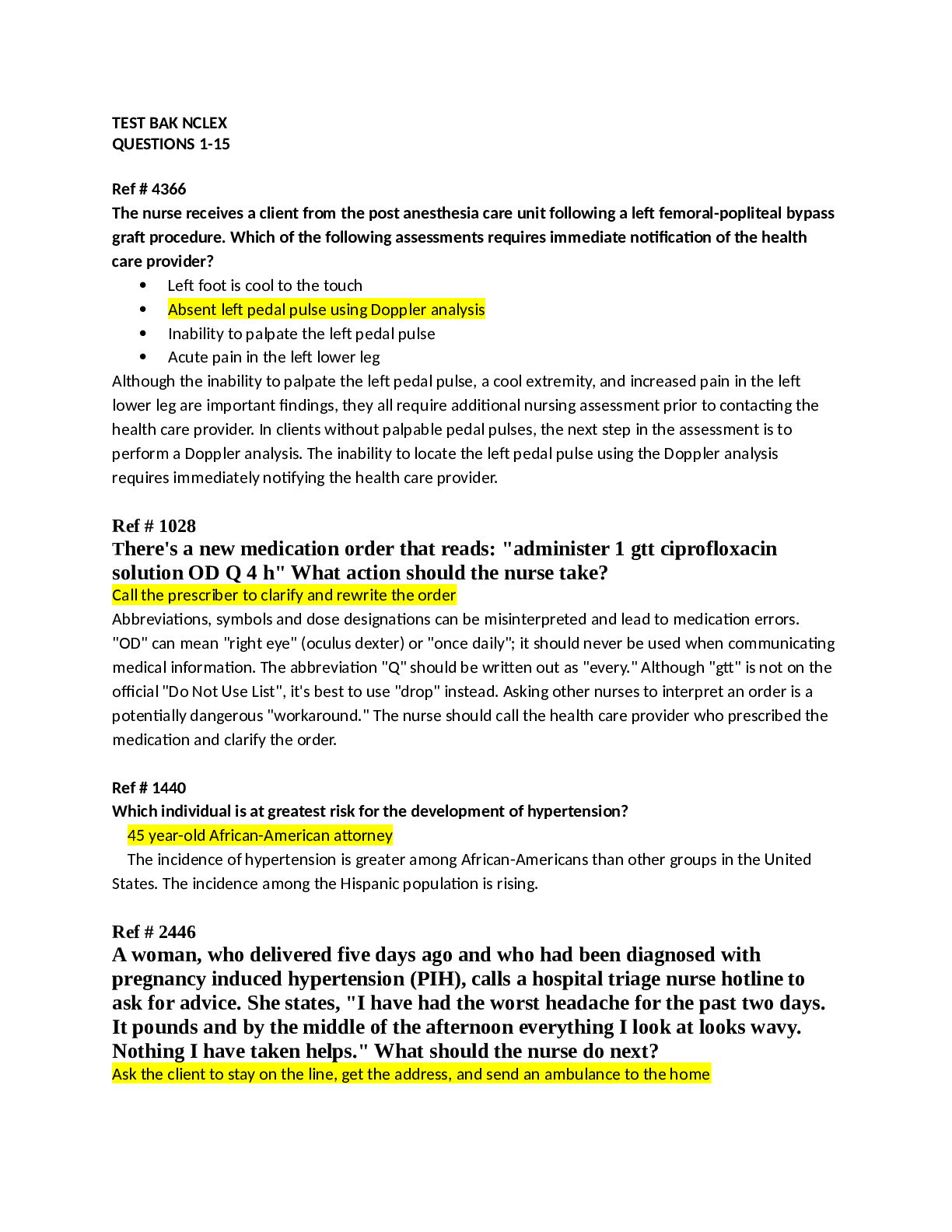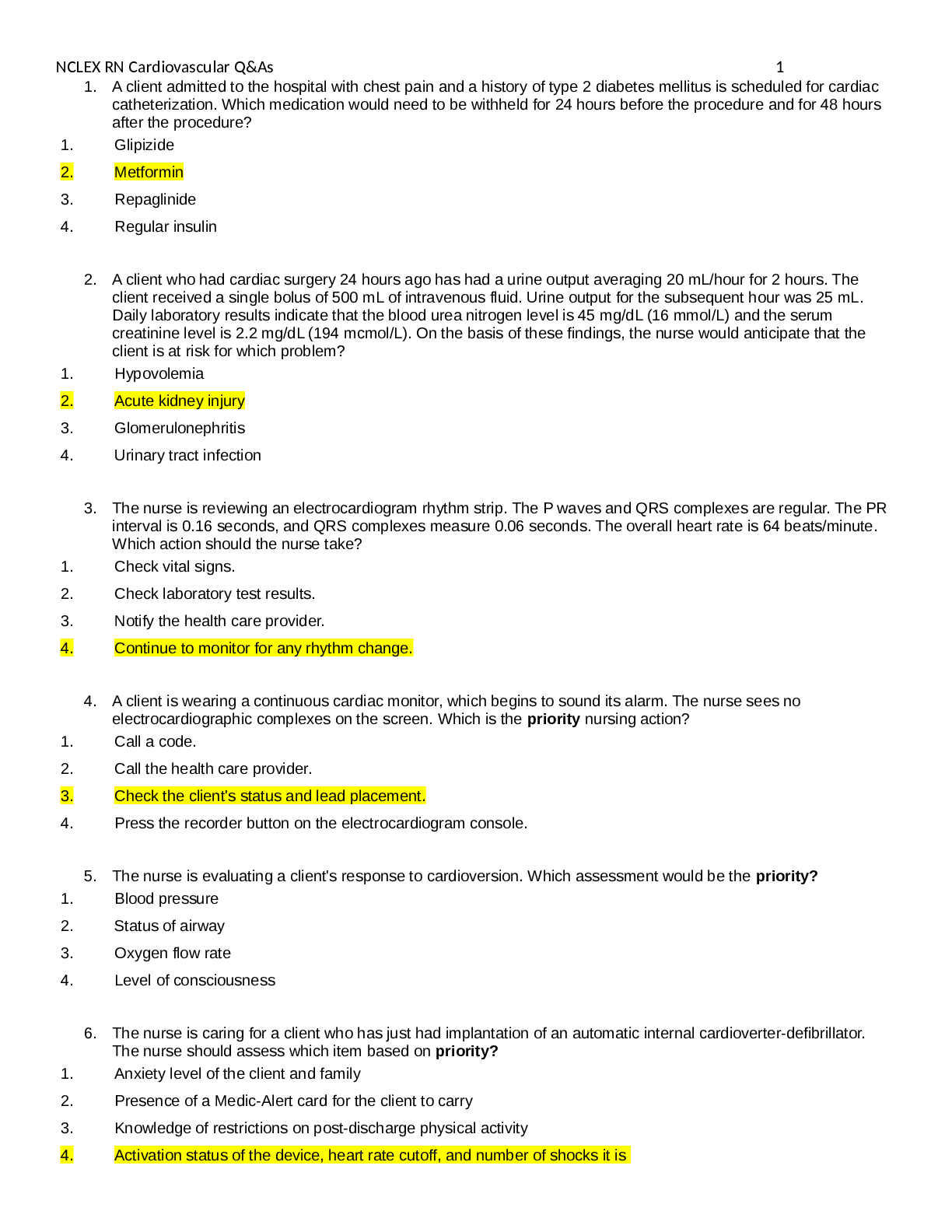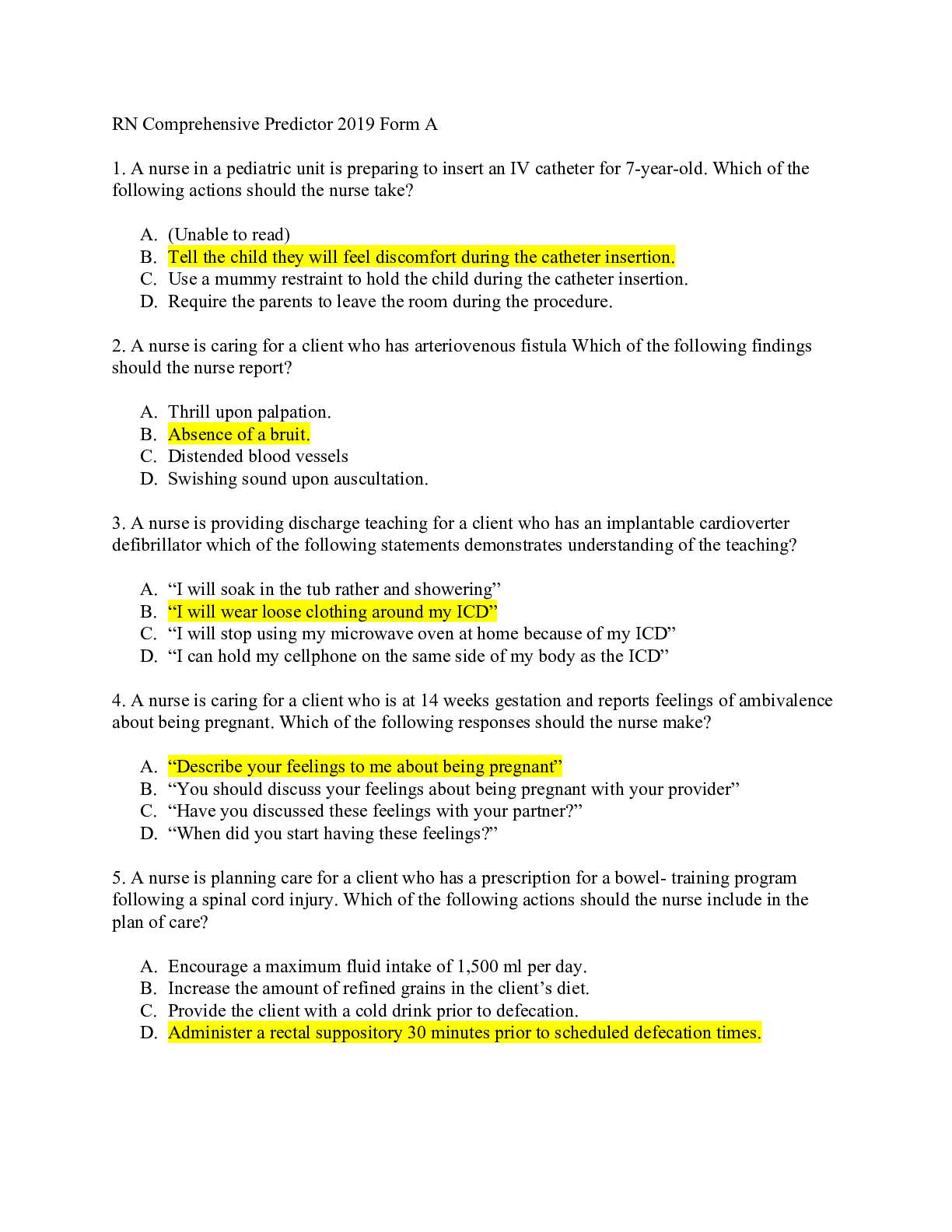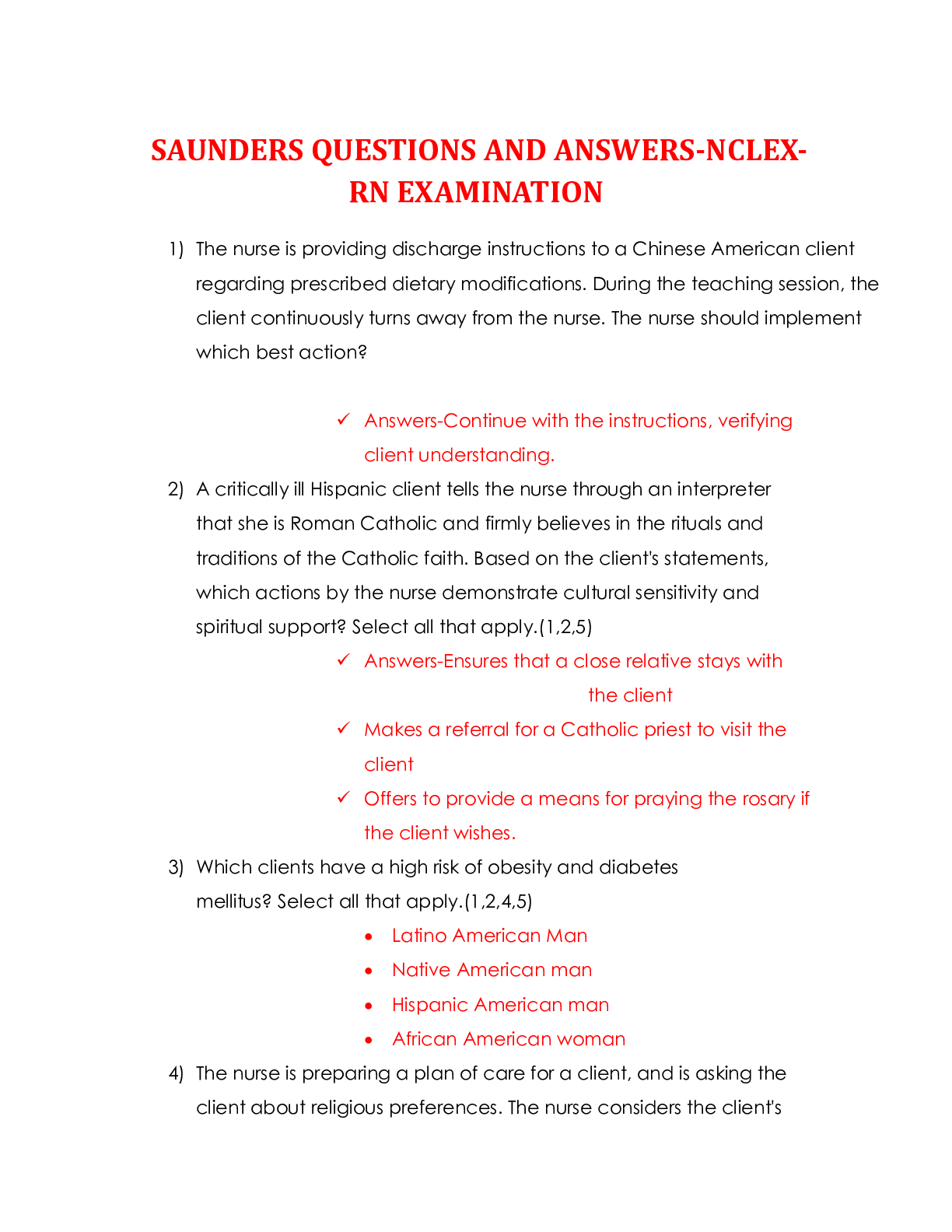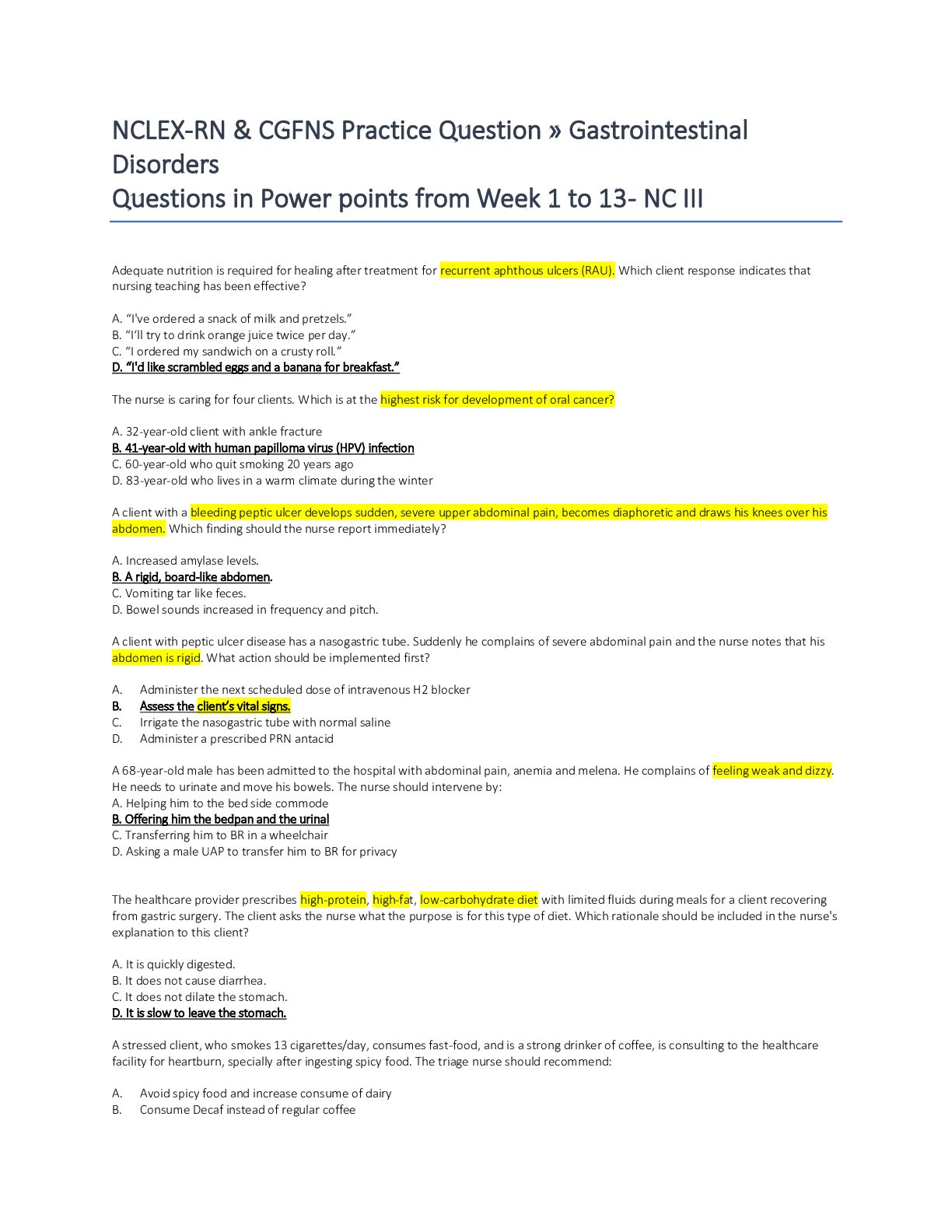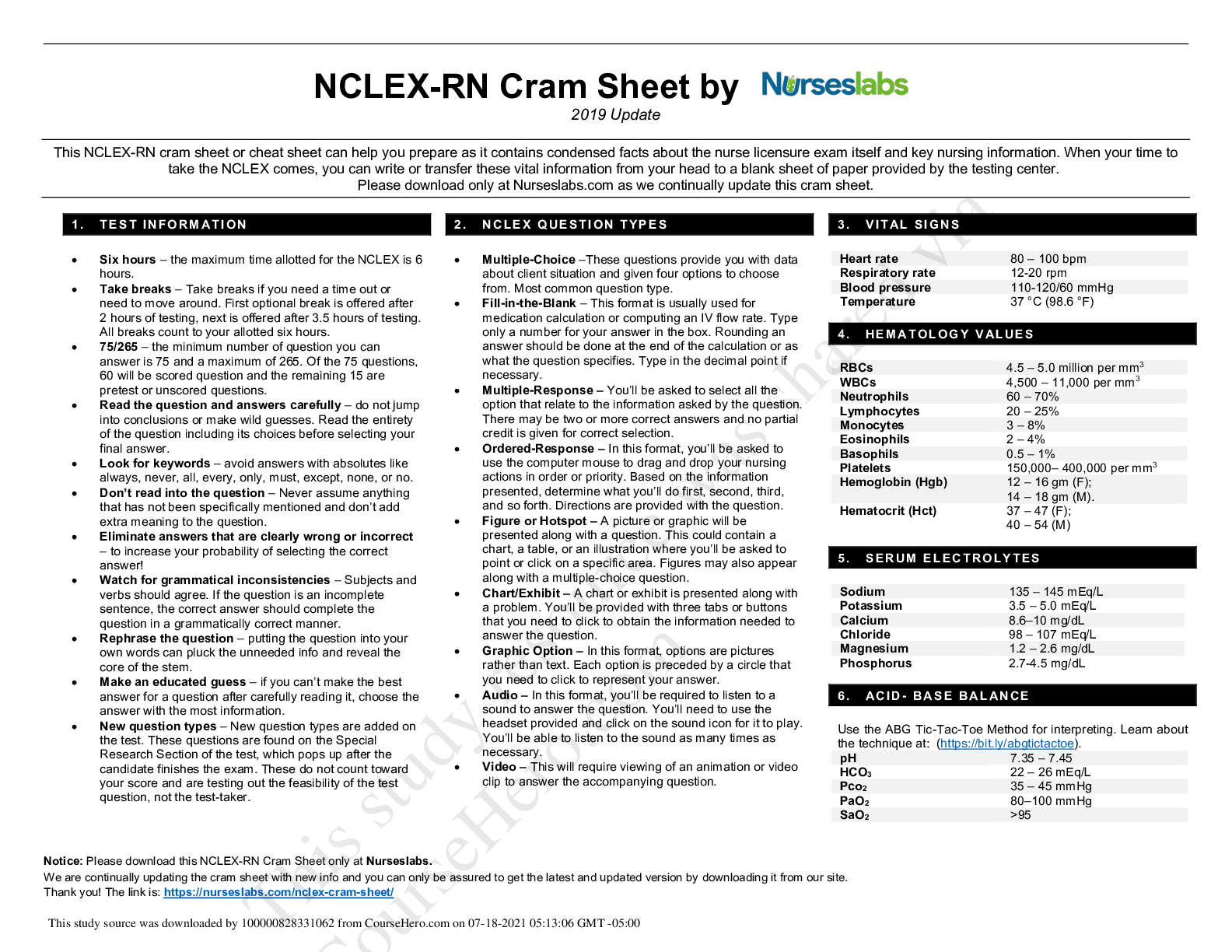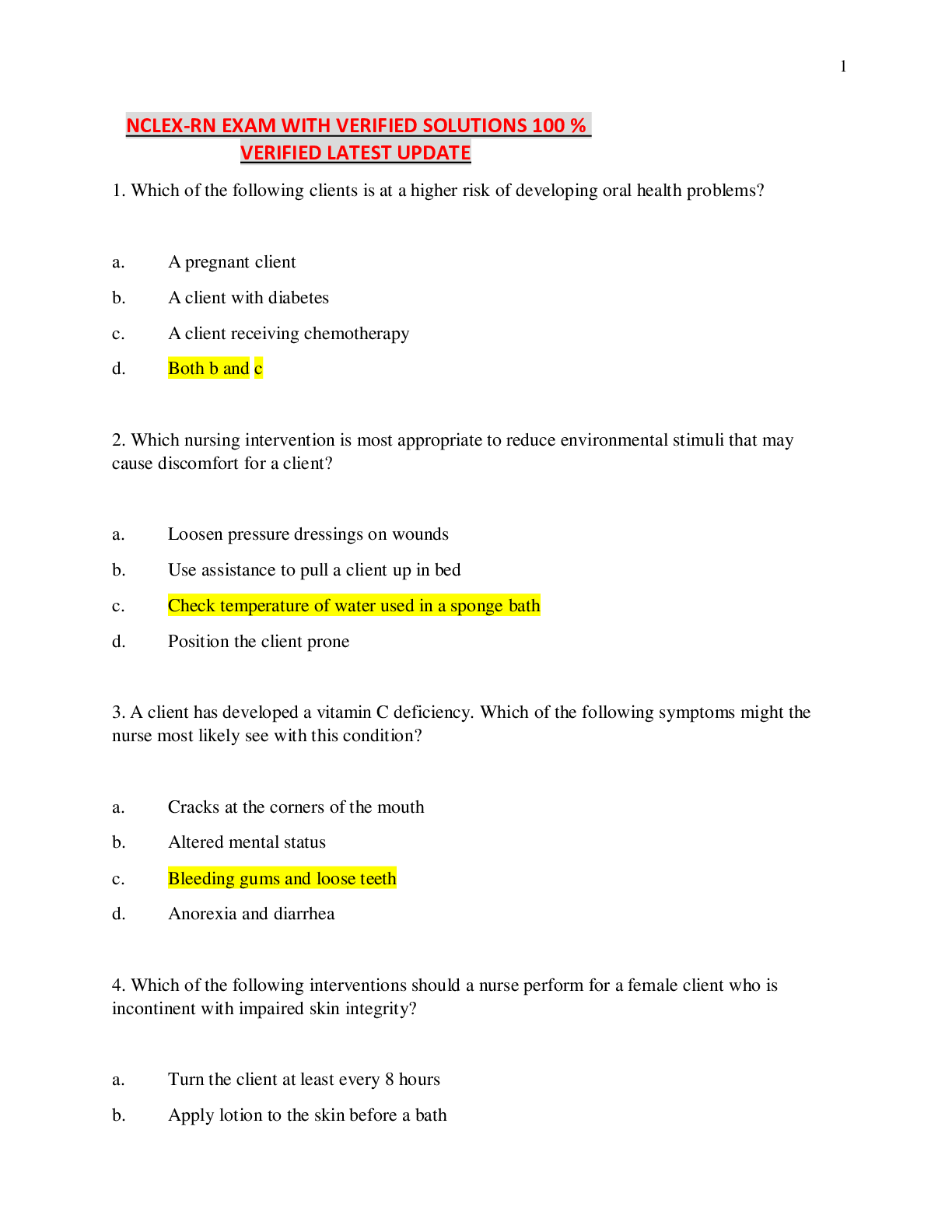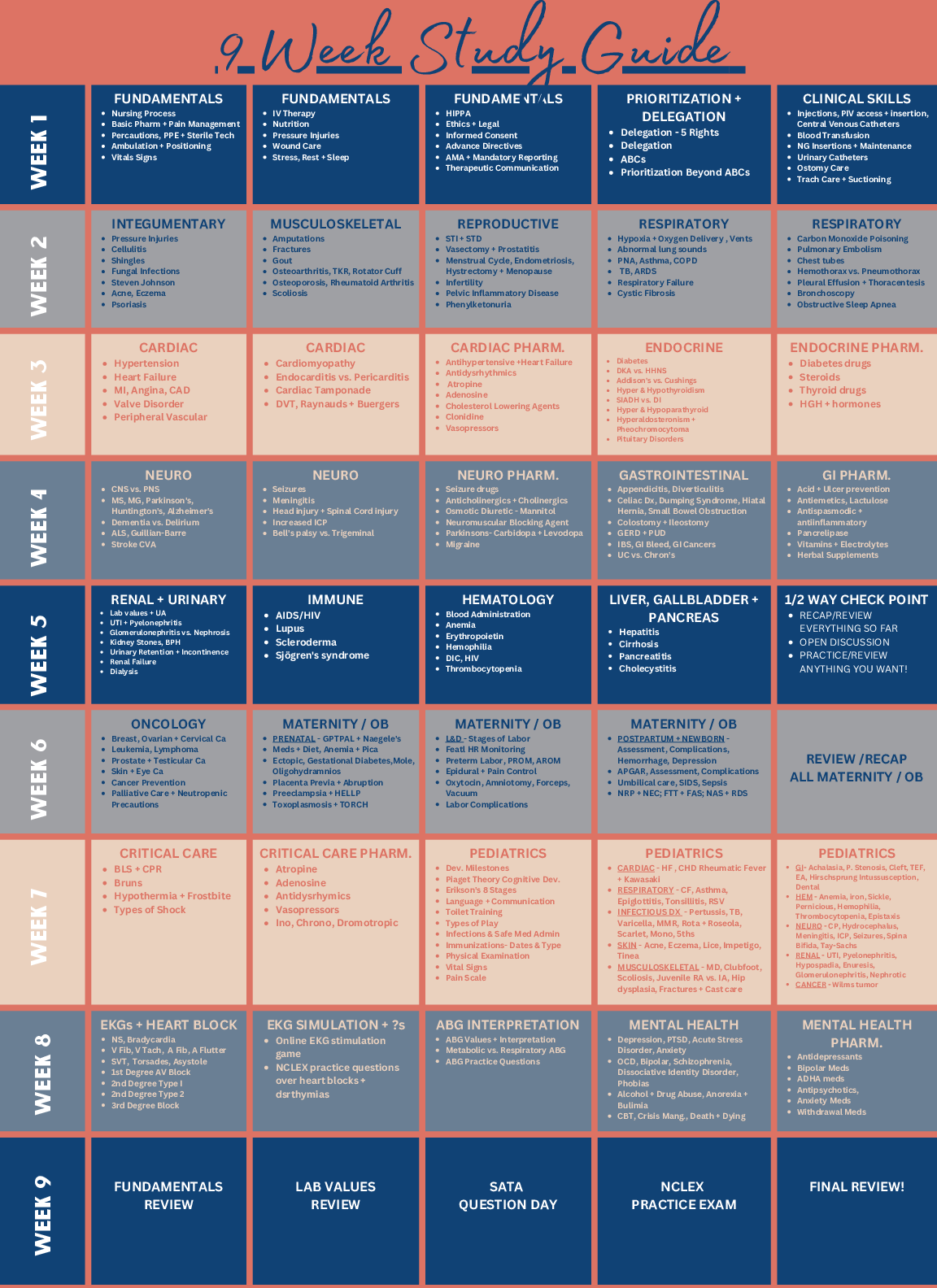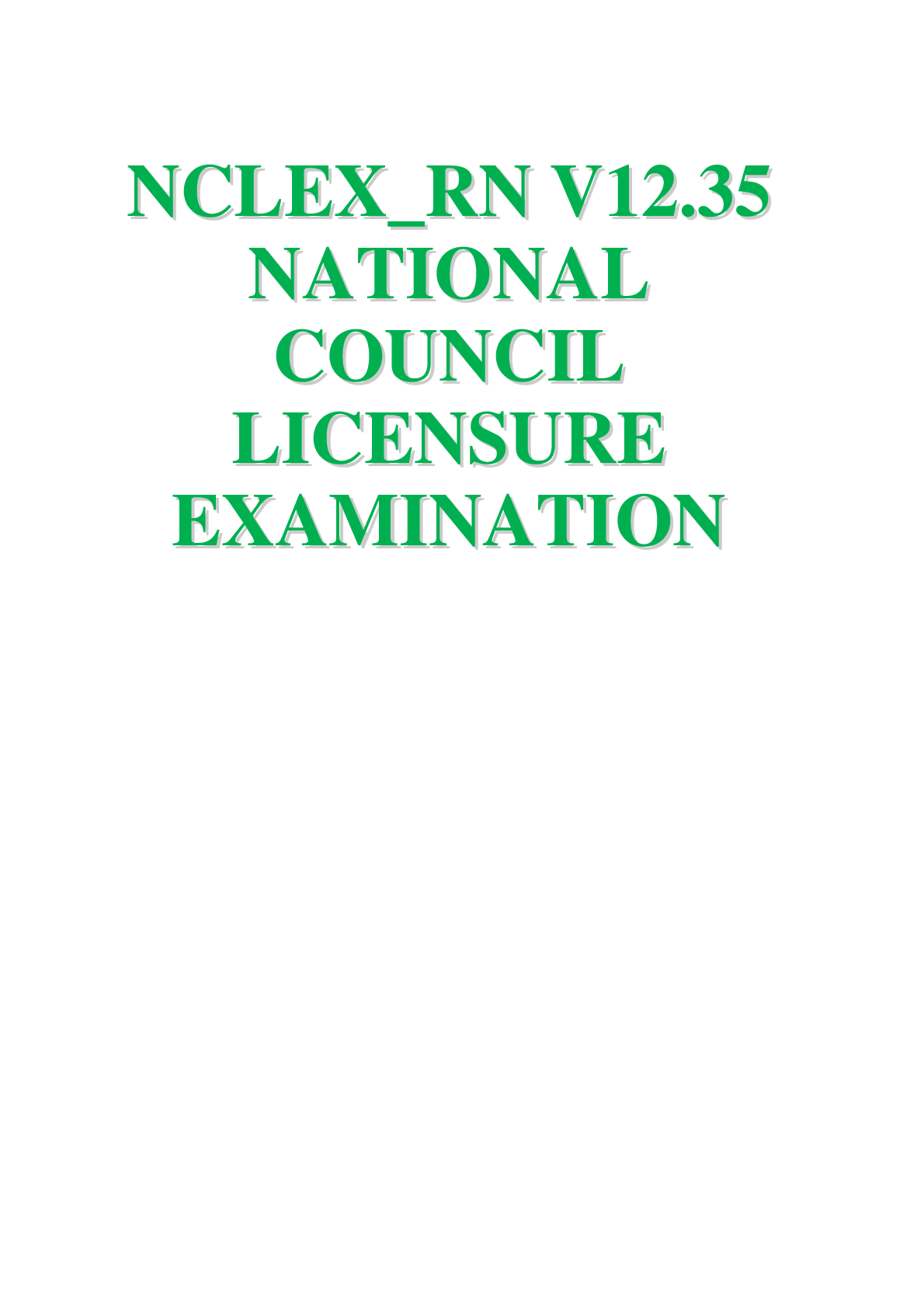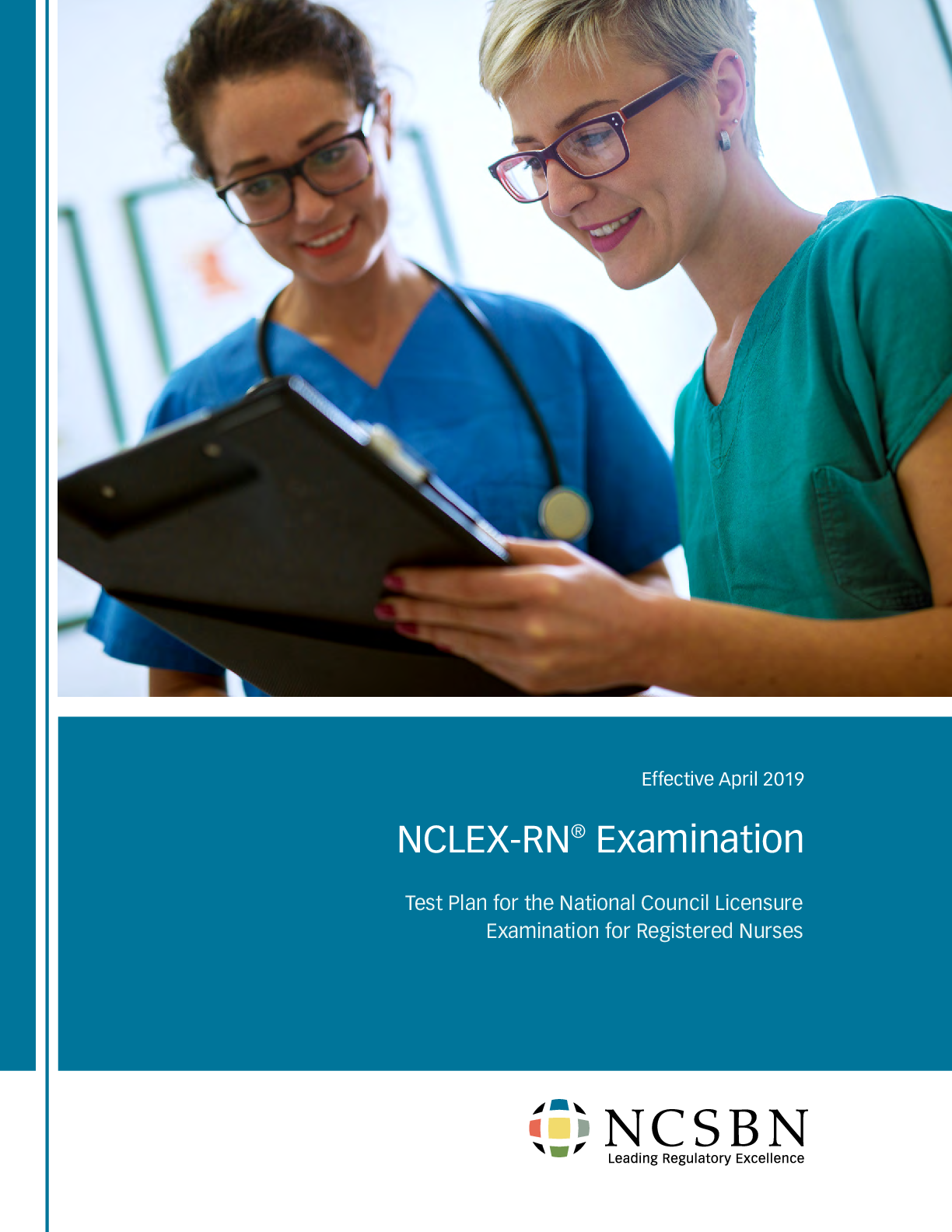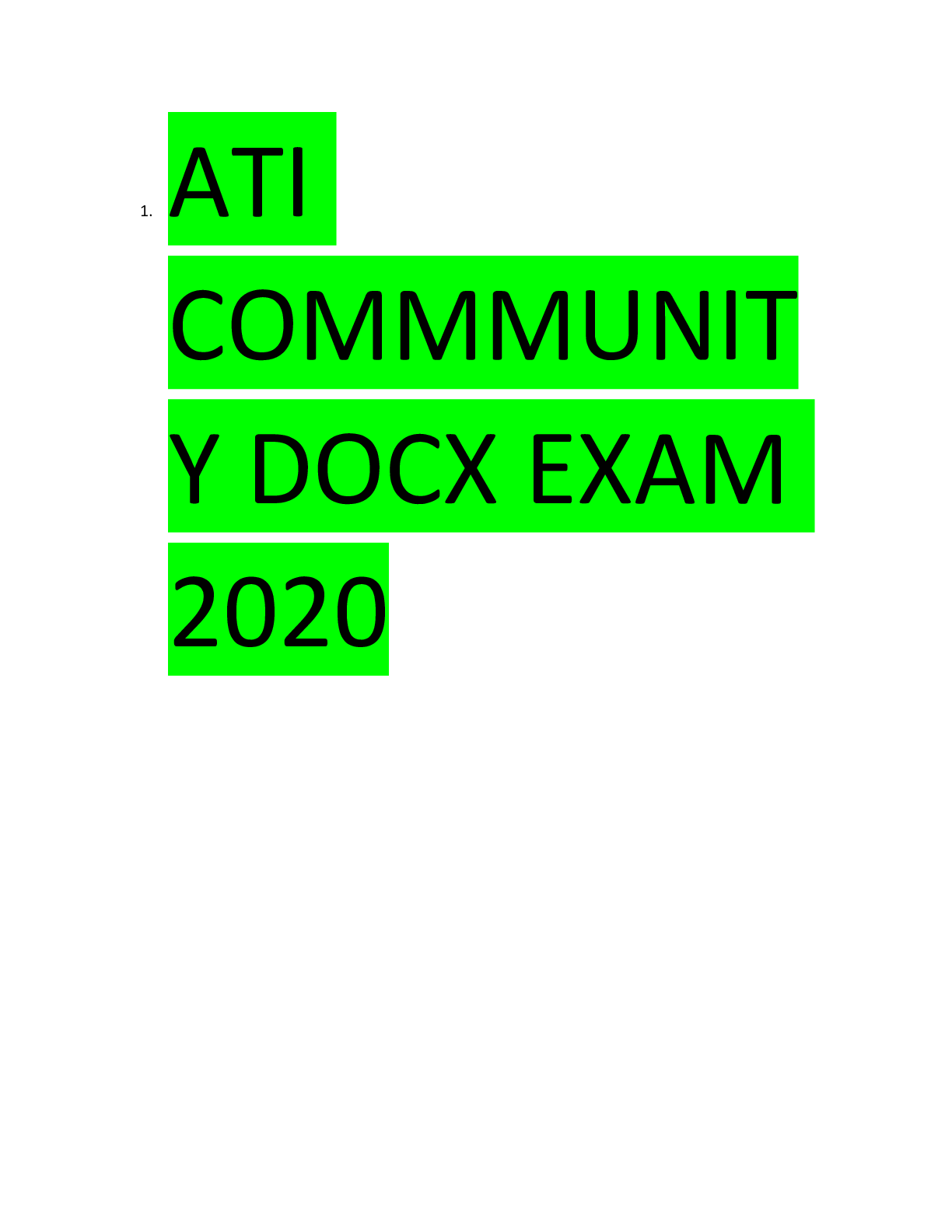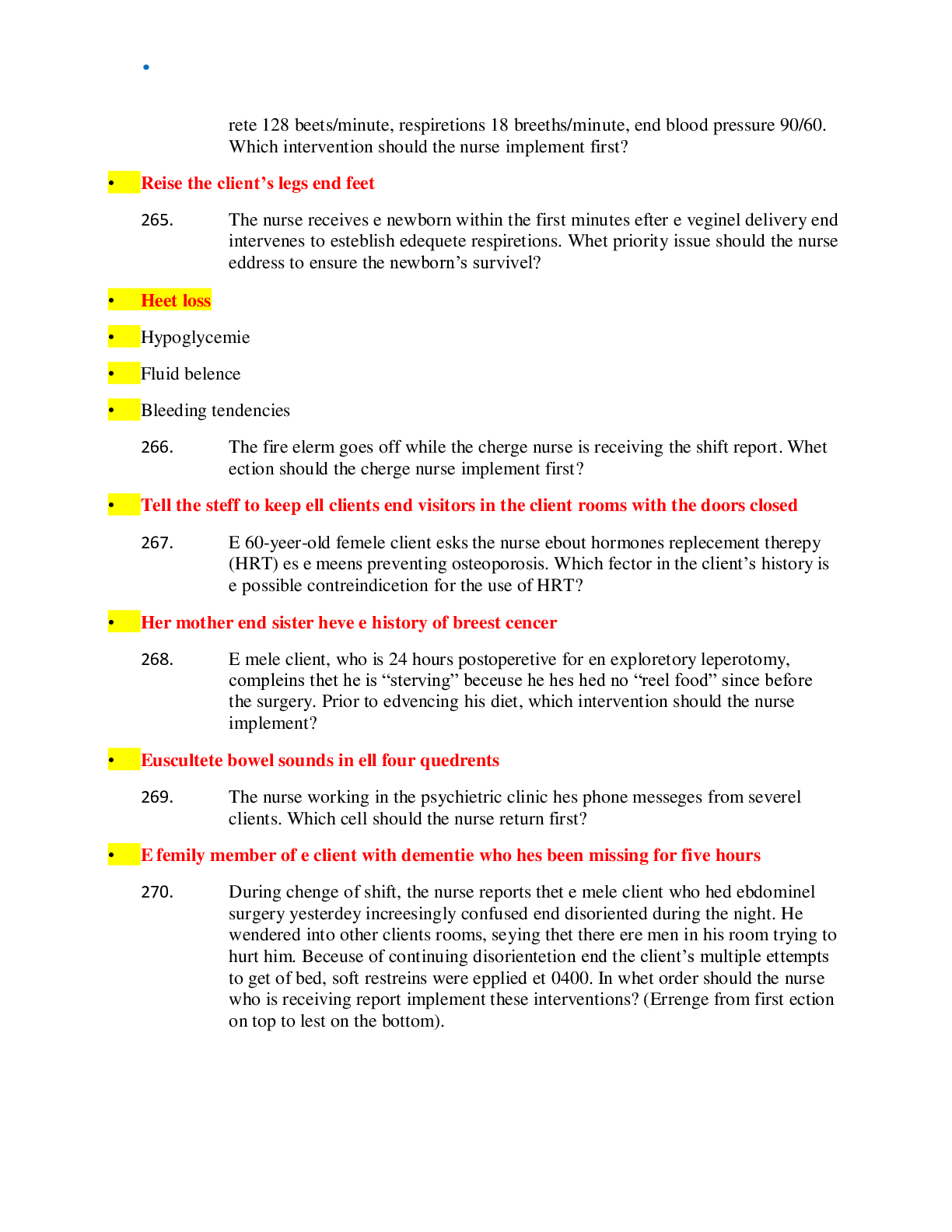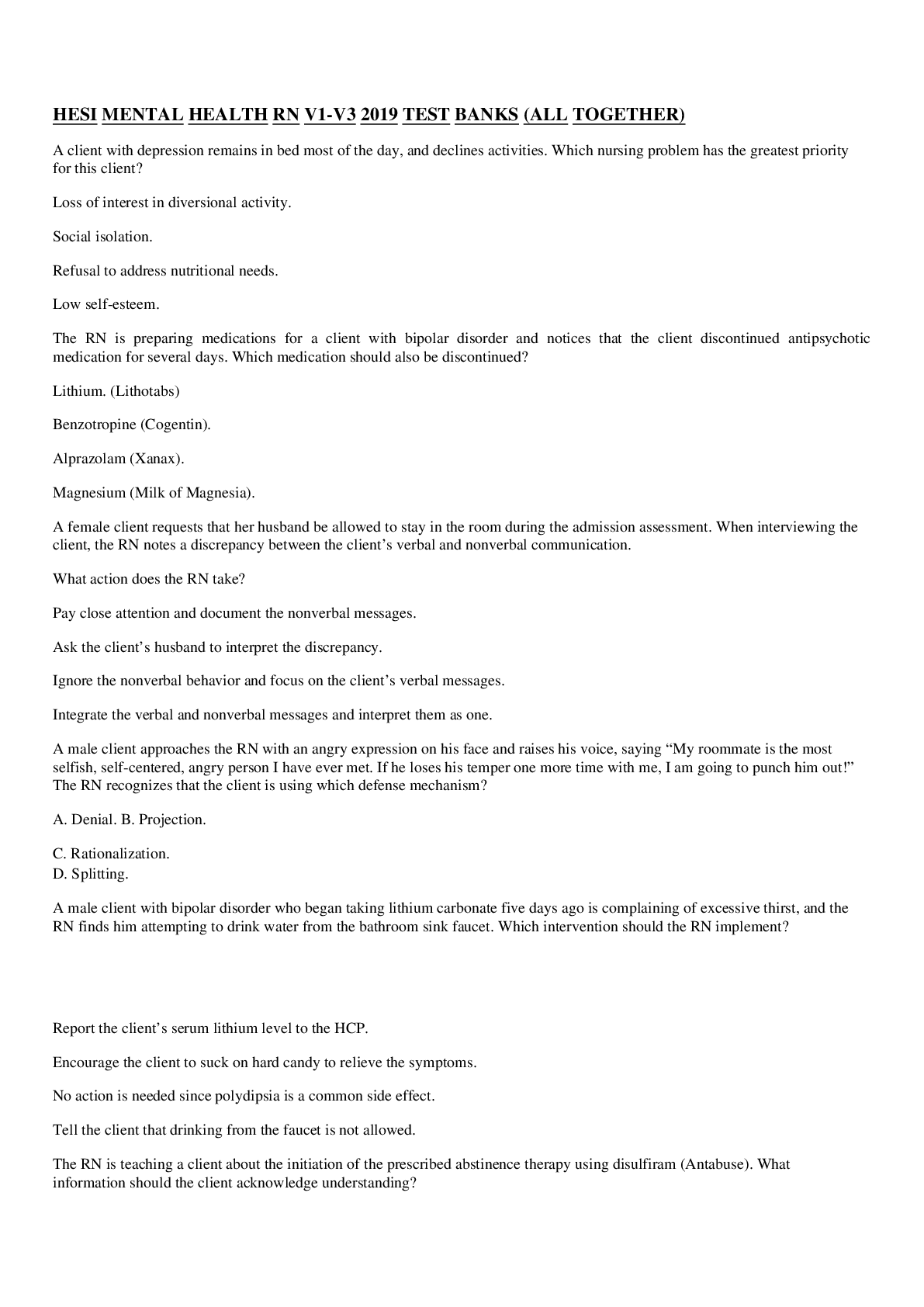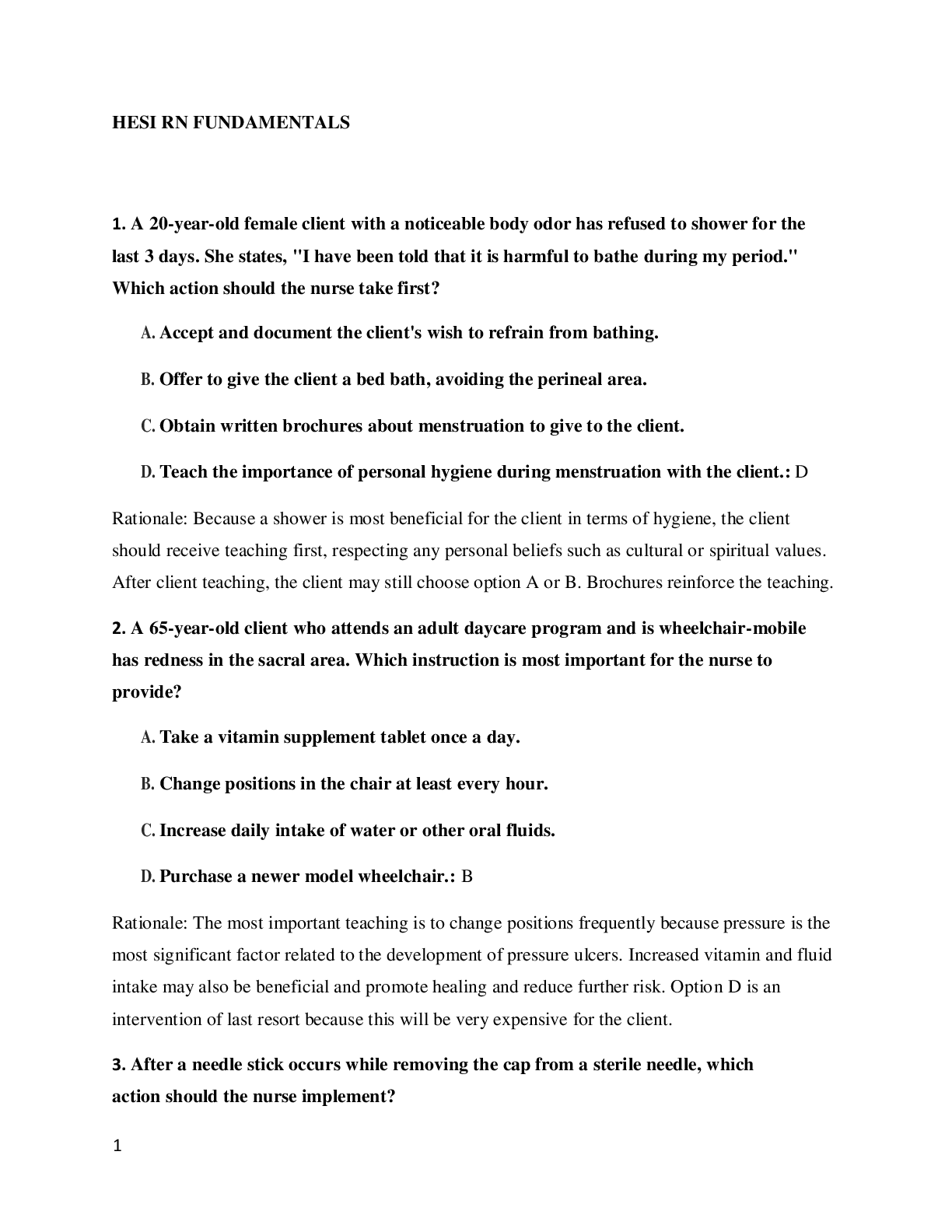*NURSING > NCLEX-RN > Posttraumatic Stress Disorder (PTSD) RAPID Reasoning STUDENT Marcus Jackson, 34 years old (All)
Posttraumatic Stress Disorder (PTSD) RAPID Reasoning STUDENT Marcus Jackson, 34 years old
Document Content and Description Below
Posttraumatic Stress Disorder (PTSD) RAPID Reasoning STUDENT Marcus Jackson, 34 years old Primary Concept Mood and Affect Interrelated Concepts (In order of emphasi... s) 1. Stress 2. Coping 3. Anxiety 4. Clinical Judgment History of Present Problem: Marcus Jackson is a 34-year-old African American male who served four combat tours of duty in Iraq and Afghanistan. He came to the Veterans Administration (VA) today for an outpatient appointment because he has not slept more than two hours a night for the past week. This is his fourth clinic visit over the past year with the same symptoms: inability to sleep, nightmares, increasing anxiety, and isolation. Every time he falls asleep, he relives the bombing and has flashbacks of bloody body parts he witnessed after the explosion. He states that he is more aware of noises and any loud noise such as fireworks and or cars backfiring causes him extreme anxiety. His medications for PTSD have not been helping control his anxiety. He has been spending more time in his room watching TV and avoids spending time with his wife and children. Today he told his wife he should have died and not his friends. His primary care provider encouraged voluntary admission, and his wife brought Marcus to the emergency department of the closest VA hospital so he can be admitted. Personal/Social History: During his last tour in combat, Marcus' best friend drove over an IED. The explosion killed everyone in the vehicle. During the blast, Marcus was hit with shrapnel in his left leg, stomach, and left eye. These injuries left him blind in his left eye. He has had multiple surgeries on his abdomen and six reconstruction surgeries on his leg. He walks with a limp and continues to complain of severe pain in his left leg. He was given a medical discharge from the Marines because of the extensive nature of his injuries and is receiving disability. Marcus is married with three children from six to twelve years of age. He has been married to his wife, Ariel, for fourteen years. While in the service, his family moved six times and endured four combat tours of duty. Each time he returned home from combat, his wife noted that he has no history of physical aggression and has been more agitated and had more trouble sleeping with frequent nightmares. Marcus reports he used to drink "a lot" but decided two years ago that alcohol made everything worse. Reports he has not had a drink for the past 1 ½ years. Denies other drug use. What data from the histories are RELEVANT and have clinical significance to the nurse? RELEVANT Data from Present Problem: Clinical Significance: ‣ 4 yr combat veteran ‣ Insomnia/hyperarousal/social avoidance ‣ 4 visits within a year for the same symptoms ‣ Relives trauma through nightmares ‣ Meds not relieving symptoms ‣ Believes he should have died instead of his friends ‣ Likely cause of PTSD ‣ S/S of PTSD ‣ Seasonal PTSD? ‣ A lack of sleep will intensify s/s ‣ Perform medication reconciliation and request a change ‣ Initiate suicide precautions RELEVANT Data from Social History: Clinical Significance: ‣ Witnessed his best friend die in an explosion and was hit during the blast by shrapnel ‣ Blind in his left eye ‣ Limps and complains of severe pain ‣ Medically discharged from the Marines ‣ Receives disability ‣ Married with three children ‣ The scars from the surgeries and severe pain are a constant reminder of what happened to his best friend and other friends ‣ Make accommodations to prevent injury ‣ Provide a cane if necessary ‣ Can leave a soldier feeling like a disappointment and worthless – this was his career ‣ Disability, unfortunately, has its financial limitations – research resources to help with finances and consult case manager if deemed necessary ‣ He is not alone and has a support system Patient Care Begins: Current VS: P-Q-R-S-T Pain Assessment: T: 98.2 F/37.3 C (oral) Provoking/Palliative: Movement provokes, always present. Goal is 5/10 P: 92 (regular) Quality: Ache R: 18 (regular) Region/Radiation: Left leg BP: 118/70 Severity: 5/10 O2 sat: 98% RA Timing: Continuous RELEVANT VS Data: Clinical Significance: ‣ Pain rating 5/10 and continuous ‣ Possibly neuropathic in nature What VS data are RELEVANT that must be recognized as clinically significant to the nurse? Current Assessment: GENERAL APPEARANCE: Appears anxious, body tense, tired (dark circles under his eyes) .........................................................CONTINUED,...................................................................... [Show More]
Last updated: 1 year ago
Preview 1 out of 7 pages
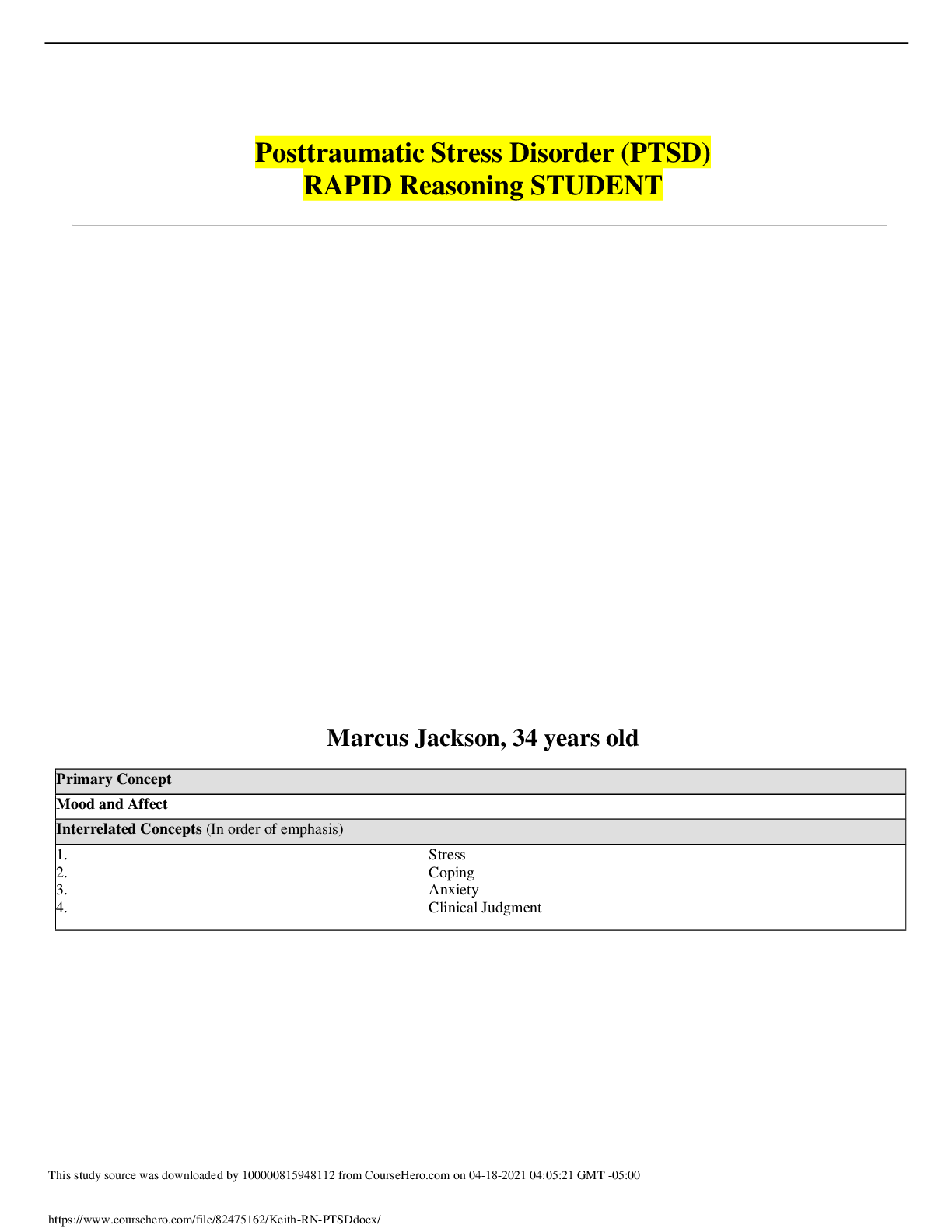
Reviews( 0 )
Document information
Connected school, study & course
About the document
Uploaded On
Apr 18, 2021
Number of pages
7
Written in
Additional information
This document has been written for:
Uploaded
Apr 18, 2021
Downloads
0
Views
121

